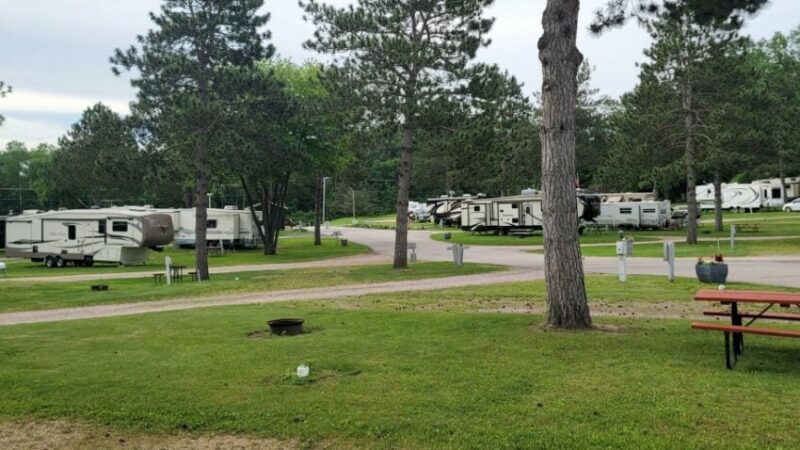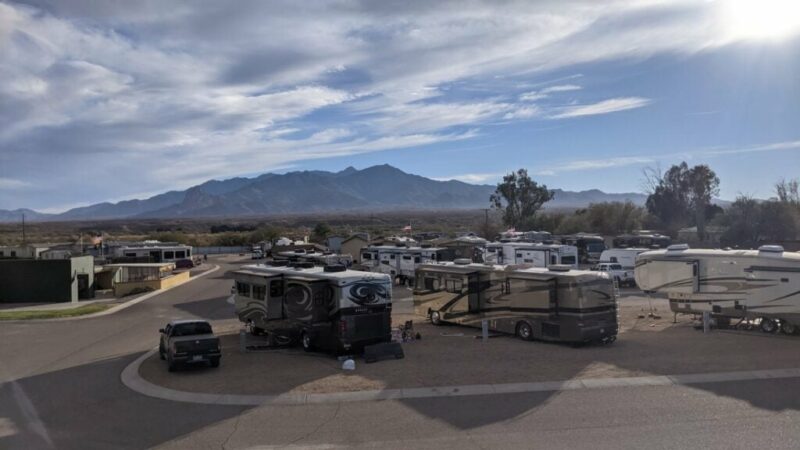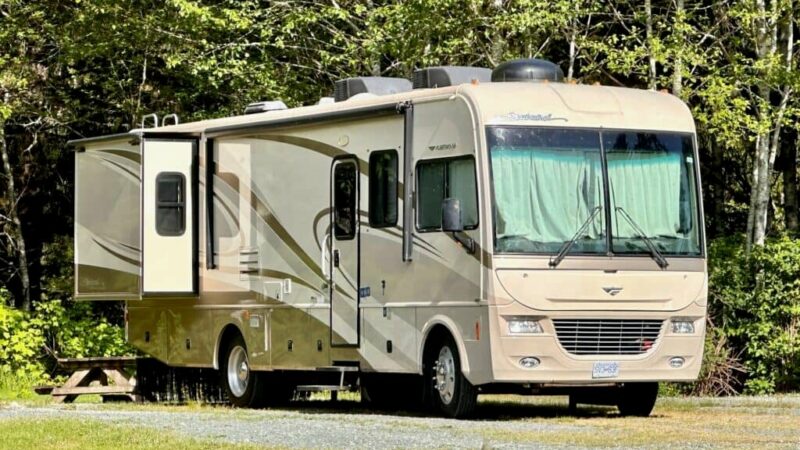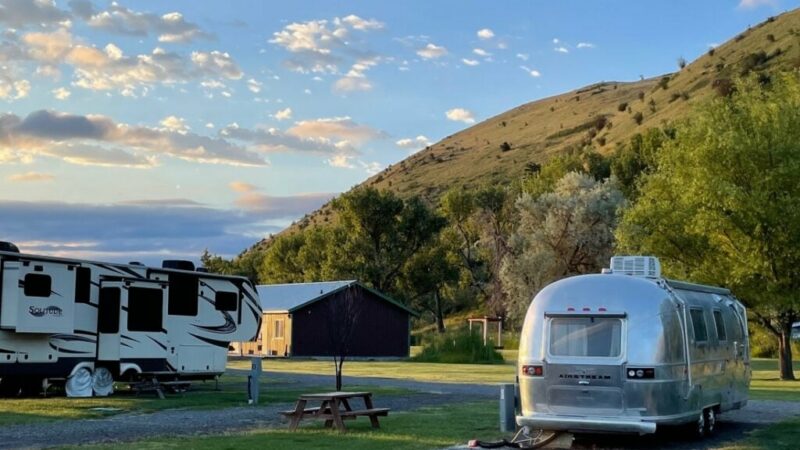Can I Leave My RV Plugged In All The Time?
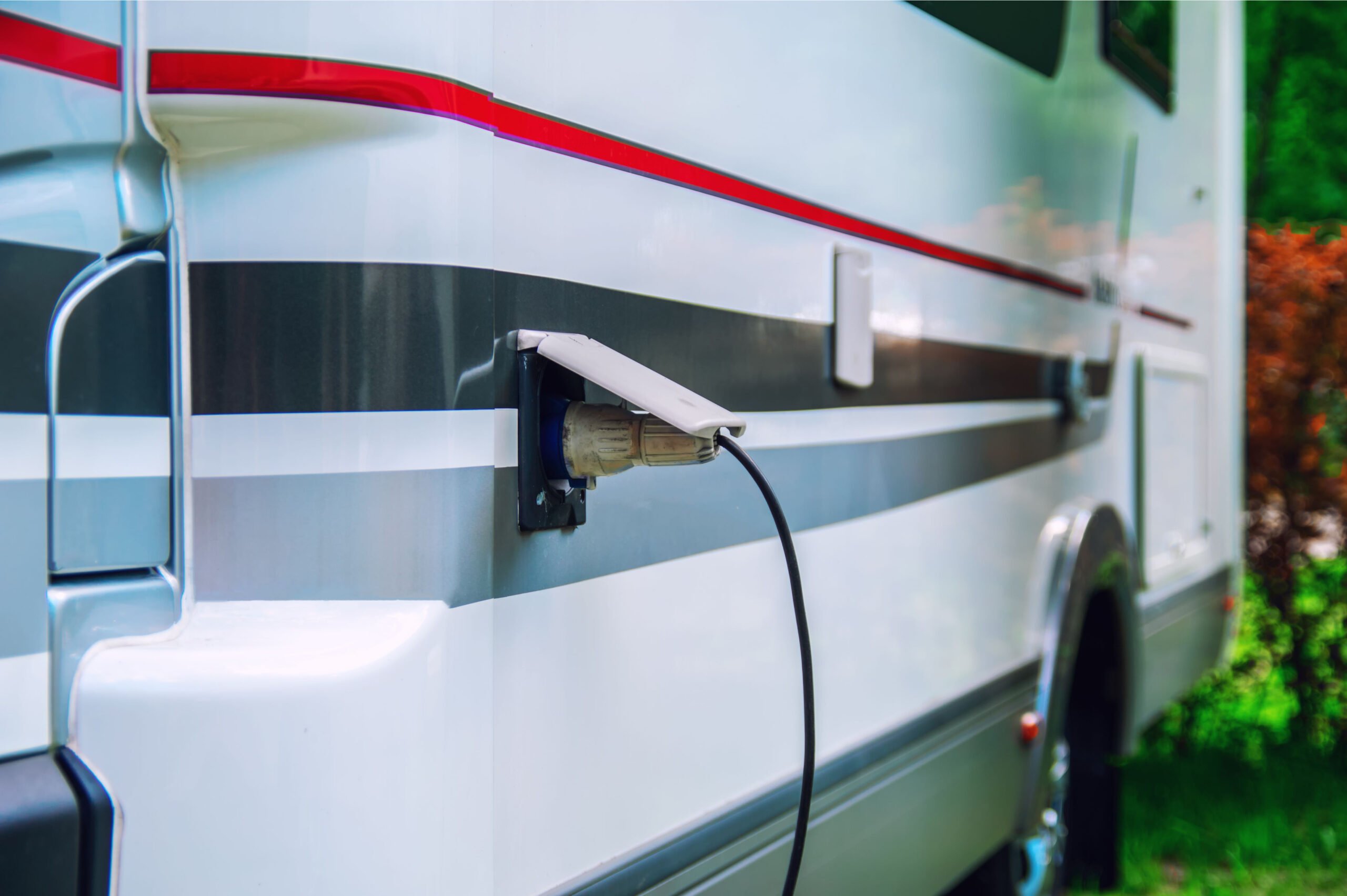
Is It Safe To Leave Your RV Plugged In All The Time?
There are a number of reasons to leave your RV plugged in constantly, but there are also some drawbacks to doing this. What works well for you may not be ideal for the next person, so it’s best to look at the pros and cons and decide for yourself whether you can leave your RV plugged in all the time.
What happens if I leave my RV plugged in?
There are many reasons a person might wish to leave their RV plugged in all the time. Some of the most common reasons include:
- Living in the RV full-time
- Wanting to leave the fridge running between camping trips
- Keeping batteries topped off for impromptu boondocking trips
- Running the heat between camping trips in fall or winter to keep pipes from freezing
Will leaving my RV plugged in damage the batteries?
Now that you understand why somebody might want to leave their RV plugged in all the time, you might be wondering what the drawbacks are. One downside that many people bring up is damage to the RV house batteries. Is this a legitimate concern? The answer is an unsatisfactory, “It depends.”
Most new RVs come equipped with a smart charger, a converter that can detect when your batteries are nearly fully charged and automatically switch to a slow charge mode in order to avoid overcharging. Therefore, if you have a newer rig and want to keep your RV plugged in all the time, you can probably do that without causing damage to your batteries. That said, you will still need to check battery fluid levels while the RV is in storage and top them up as necessary, as well as ensure the temperature of the RV is safe for your batteries.
Those with older RVs likely do not have such a converter. In this case, we recommend unplugging your RV while it’s in storage. If you must keep it plugged in all the time, consider switching to a more modern converter that can help keep your batteries healthy.
Other drawbacks to keeping an RV plugged in
If damaging your batteries isn’t necessarily a problem when it comes to leaving your RV plugged in all the time, what other drawbacks might there be?
Unfortunately, there are some other issues that you might run into if you choose to leave the rig plugged in. These drawbacks include:
- Cost. Keeping your RV plugged in while it’s sitting in storage will come with a price tag. The total monthly cost will depend on the cost of electricity in your area and what you’re running in the RV.
- Wear and tear. If you leave things running in your RV, they will give out a lot sooner. Keep in mind that RV appliances aren’t meant to be used full-time when you’re deciding whether to leave your fridge and vent fans running for long periods of time.
- Cold weather damage to batteries. While your RV batteries won’t be subject to overcharging when using a smart charger, they can be damaged by cold weather over time, even if they are plugged in. This means storing the batteries in the rig for winter may not be ideal.
- Danger of electrical fires. Where there is electricity, there is danger of electrical fires. Unfortunately, if you aren’t in the RV when a fire starts, there is not a lot you can do to prevent it from spreading, meaning leaving your RV plugged in and the batteries hooked up while storing it could be a very expensive mistake.
Alternatives to keeping a stored RV plugged in
Don’t want to deal with the drawbacks of leaving your RV plugged in? Not to worry! There are other ways to ensure your RV is ready for camping at the drop of a hat. Here are alternative solutions to staying plugged in 24/7.
Keep batteries charged
Want to keep your RV batteries charged between trips? Rather than leaving the RV plugged in and risking cold-weather damage to the batteries, take the batteries out of the RV, ensure the fluids are topped off, store them somewhere warm, and leave them connected to a trickle charger. This will ensure they are ready to go camping whenever you are!
Cool the fridge faster
Hate waiting for the fridge to cool down before every camping trip? You can definitely leave the RV plugged in for the few weekdays between weekend trips now and then. That said, if you’ll be storing the rig longer than that, consider unplugging it until the night before you pull it out of storage, at which time you can plug the RV in and fill the fridge with frozen water bottles to speed up the cooldown process.
Prevent pipes from freezing
Leaving the RV plugged in and running the heater all winter is expensive. Not only will you be spending money on electricity, you’ll also be stuck refilling propane tanks on a regular basis.
A much better (and more effective) solution to ensuring your RV pipes don’t freeze is to winterize the RV water system. We recommend doing this before the first freeze in the fall. You can then use campground restrooms during any trips you take after winterizing, or de-winterize and re-winterize for each trip.
So, can you leave your RV plugged in all the time? Well, you certainly can, and if you’re RVing full-time, it really is what makes the most sense. That said, while staying plugged in 24/7 likely won’t overcharge your batteries, it probably isn’t the best idea to leave your RV plugged in all the time while it’s sitting in storage.
Track your RV maintenance
Make sure you keep track of all your RV maintenance and repairs with an online tool such as RV LIFE Maintenance. Not only can you keep all of your documents in one place, but you’ll also receive timely reminders when maintenance is due to help you avoid costly repairs and potentially serious accidents.
Related articles:
The post Can I Leave My RV Plugged In All The Time? appeared first on RV LIFE.




